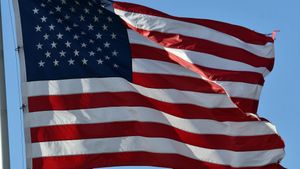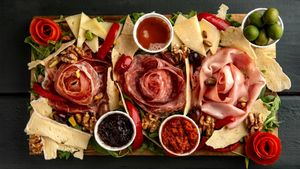The relationship between Canada and the United States has taken another contentious turn following the recent imposition of 25% tariffs on Canadian goods by President Donald Trump. The tariffs, which Trump justified as measures to combat illegal drug trafficking and immigration, have ignited swift retaliatory actions from Canadian provinces, particularly targeting American alcoholic products.
Canadian leaders have denounced the tariffs, labeling them economic aggression and swiftly moving to counteract the impacts on their markets. This conflict has manifested prominently through bans on the sale of U.S. alcohol, particularly affecting popular brands from states run by Republican governors.
Starting February 4, Manitoba took the lead with Premier Wab Kinew announcing the cessation of sales for American alcoholic products. Kinew emphasized this move as not only punitive against the Trump administration's decision but also as a rallying cry for local consumers to back Canadian breweries and distilleries instead of American imports. According to the USA Today report, he underscored the importance of consumer choices: “When we buy local, we support our economy.”
Following Manitoba's lead, Ontario's Premier Doug Ford instructed the Liquor Control Board of Ontario (LCBO) to enact similar measures. Ford noted the financial impact, claiming, “Every year, LCBO sells nearly $1 billion worth of American wine, beer, spirits, and seltzers. Not anymore.” His directive not only covered government-operated liquor stores but also extended the ban to all wholesale distributions, effectively barring restaurants and retailers from restocking U.S. alcohol.
Nova Scotia has also joined the ranks of Canadian provinces imposing similar restrictions. Premier Tim Houston has issued orders for the Nova Scotia Liquor Corporation to halt sales of American beverages, aligning with the increasing push for domestic consumption across various sectors.
These moves correspond with Prime Minister Justin Trudeau's broader retaliatory stance, as he announced tariffs on $155 billion worth of American goods, which includes alcoholic beverages. “Our response will also include everyday items such as American beer, wine, and bourbon,” Trudeau stated, indicating the seriousness of the conflict and the potential for long-lasting ramifications on trade.
Notably, British Columbia has taken the peculiar step of targeting alcohol imports from states governed by Republicans. Premier David Eby ordered the provincial liquor distribution branch to stop purchasing U.S. brands deemed politically aligned with the tariffs. “We are not punishing states without cause; this is about holding accountable those who are inflicting harm on our province,” said Housing Minister Ravi Kahlon.
The Canadian government’s actions represent more than just restrictions on alcohol. They signify both economic and diplomatic responses to what many see as aggression from the U.S. administration. While the tariffs are presented by Trump as measures against the flowing crisis of fentanyl and illegal migration, critics argue they serve to exacerbate trade frictions.
Experts warn about the wide-ranging effects tariffs could have on businesses on both sides of the border. The Distilled Spirits Council of the United States (DISCUS) expressed dismay over the countermeasures, with President Chris Swonger asserting, “This aggressive retaliation targeting American spirits is extremely disappointing and counterproductive.” He highlighted the interconnectedness of the industry across the border as both nations depend on each other for commerce.
Reports indicate American whiskey producers, particularly from states like Kentucky which heavily rely on Canadian exports, stand to feel the brunt of these repercussions. Kentucky’s bourbon industry could see significant losses as Canadian consumers pivot away from American brands. “This will devastate our commonwealth's signature bourbon industry, generating hundreds of millions of dollars of tax revenue each year and employing tens of thousands of Kentuckians,” lamented U.S. Rep. Morgan McGarvey.
Trump’s current stance suggests little regard for the potential fallout, with him stating on social media, “Will there be some pain? Yes, maybe (and maybe not!). But we will make America great again, and it will all be worth the price.” This encapsulates the Trump administration’s willingness to accept the risks associated with the tariffs, as trade relationships are put to the test.
Reactions among Canadian citizens have shown the palpable impact this situation has had on public sentiment. During recent NHL games, boos echoed through arenas during the U.S. national anthem, reflecting anger over the negative tactics and perceived threats from the Trump administration. This suggests not only economic retaliations but emotional responses to the perceived disrespect from the U.S.
From Trudeau’s government to local leaders, the Canadian narrative has shifted toward the importance of supporting domestic products and fostering economic independence from U.S. imports. Trudeau's directive for citizens to check product labels, encouraging them to buy Canadian, underlines this sentiment. “Now is the time to choose products made right here in Canada,” he proclaimed.
Moving forward, Canada's measures signal potential long-term changes in the trade dynamic with America. The impact of these tariffs and bans will likely resonate beyond just the alcohol sector, affecting various markets as both parties reassess their trade strategies amid continued pressure. With mounting concerns for the effects on jobs and local economies, both nations must navigate carefully as they balance aggressive tariff policies with the economic well-being of their citizens.



